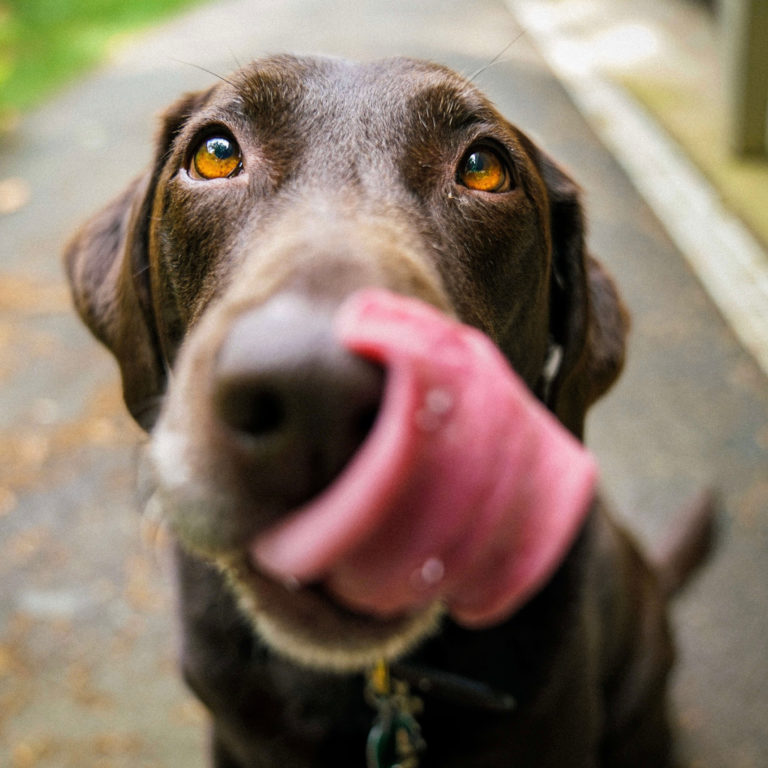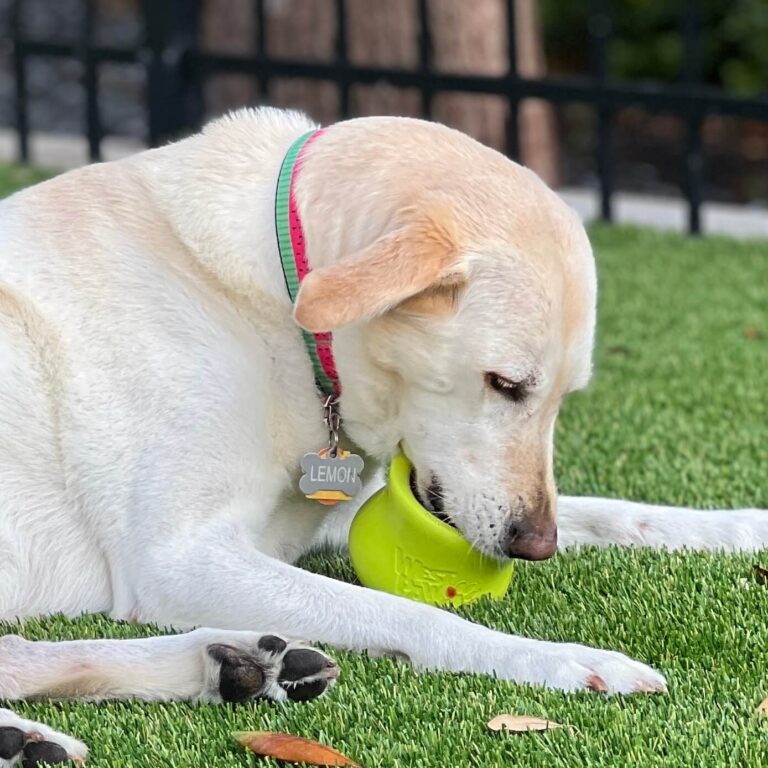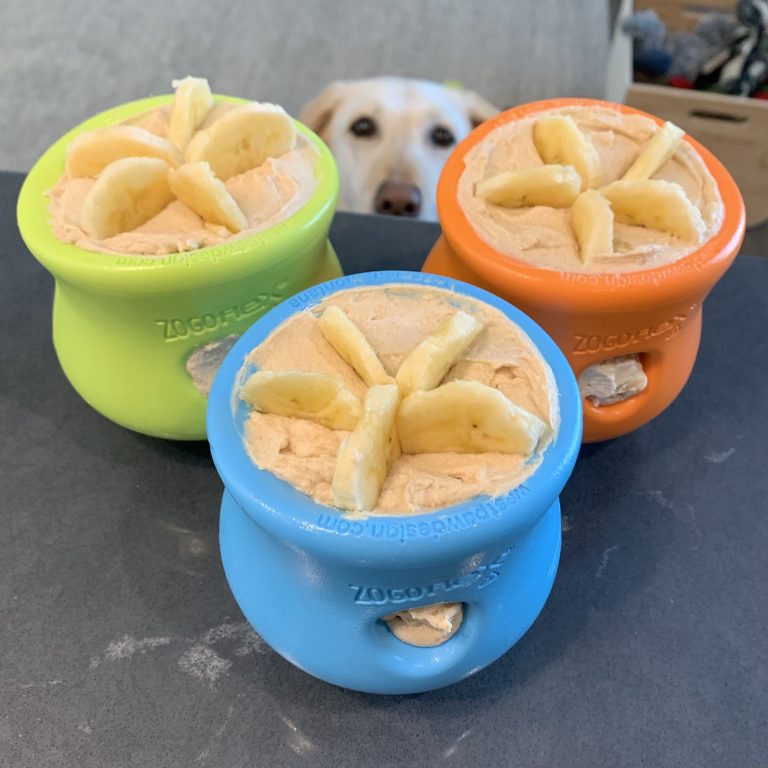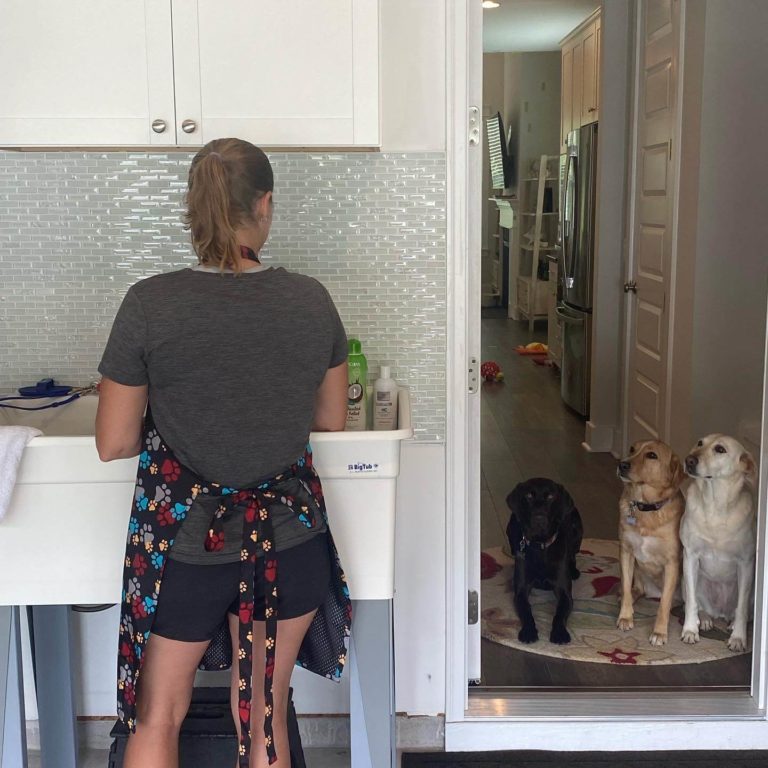How To Keep Your Senior Dog Healthy and Happy
How do you keep your senior dog healthy and happy? My dog Lemon just turned eight last month. Though she’s in the best shape of her life, there is no denying it now…she’s a senior dog.
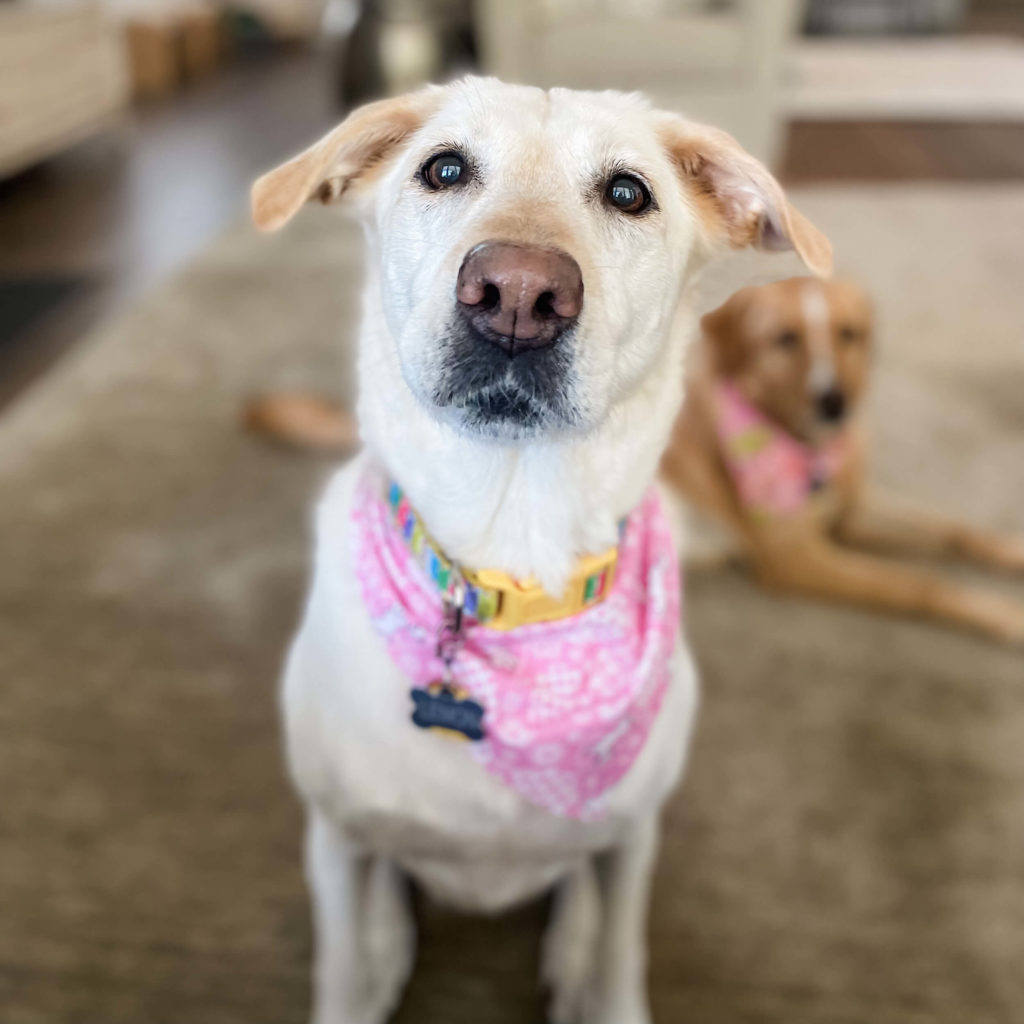
No, she doesn’t actually seem like she’s getting older. Quite the contrary. But as her dog mom, it’s definitely time for me to acknowledge that she IS older. And now I need to approach her health care with her advancing age in mind.
What age is considered senior for a dog?
Just like people, dogs of the same age can vary dramatically in terms of how they experience aging. A dog’s human age equivalent is impacted by many factors. These include the rate of canine development throughout life, as well as breed, and size.
Your veterinarian, familiar with your dog and their health history, can help you determine when your dog is considered a senior dog.
what is the best way to care for a senior dog?
So your dog is a senior. Now what?
Dogs often become seniors before they start to really seem like seniors. Senior dogs are more likely to develop osteoarthritis; heart, kidney, and liver diseases; endocrine, and neurological disorders; and even cancer. And like us, their health care needs change as they age.
Your veterinarian is the best resource for how to keep your senior dog healthy and happy. With Lemon now being 8 years old, I consulted with her veterinarian Dr. Richard Cutler, at Cutler Animal Hospital for advice.
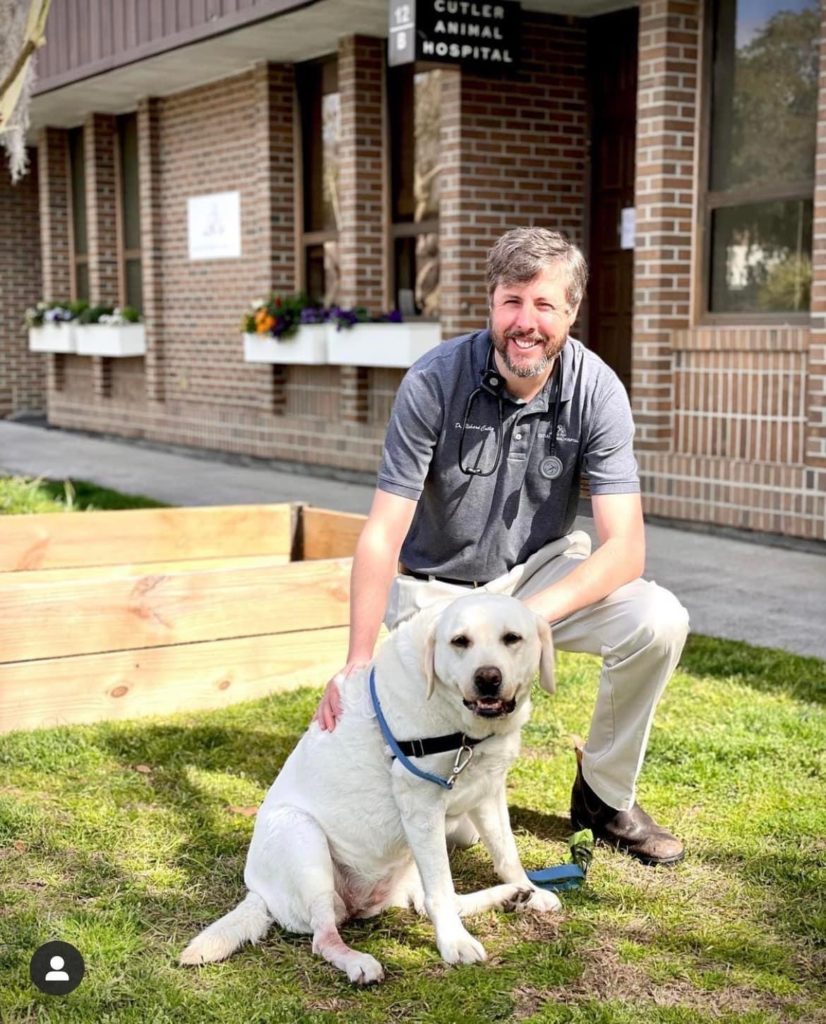
I asked Dr. Cutler what are the most important actions for me to take in Lemon’s health care, so I have the best opportunity to manage the challenges of her getting older. His guidance was straight forward and practical, and fortunately for me, it’s exactly how I’ve been approaching Lemon’s veterinary care.
Establish baseline data with bloodwork screening
It should go without saying that your dog, regardless of age, should receive a complete examination at least annually. But as Lemon is getting older, Dr. Cutler advised that I add bloodwork screening to her exam. It’s extremely important to establish her baseline laboratory numbers, and to recheck those numbers regularly to look for changes. At this point, we are checking Lemon’s bloodwork annually.

Subscribe now
For our latest
tips & tricks for
life with dogs!
“Dogs can’t talk, so you’ll need objective data as much as possible,” says Cutler. Knowing what Lemon’s numbers look like normally, when she’s healthy (her baseline), will allow Dr. Cutler to identify concerning changes as we perform additional bloodwork screenings over time. He’s then armed with concrete data to guide his recommendations for her care.
Let me put this another way…bloodwork can be expensive! It’s a tough pill to swallow when your veterinarian recommends bloodwork screening when neither of you suspects anything is wrong. But they are making this recommendation for a good reason!
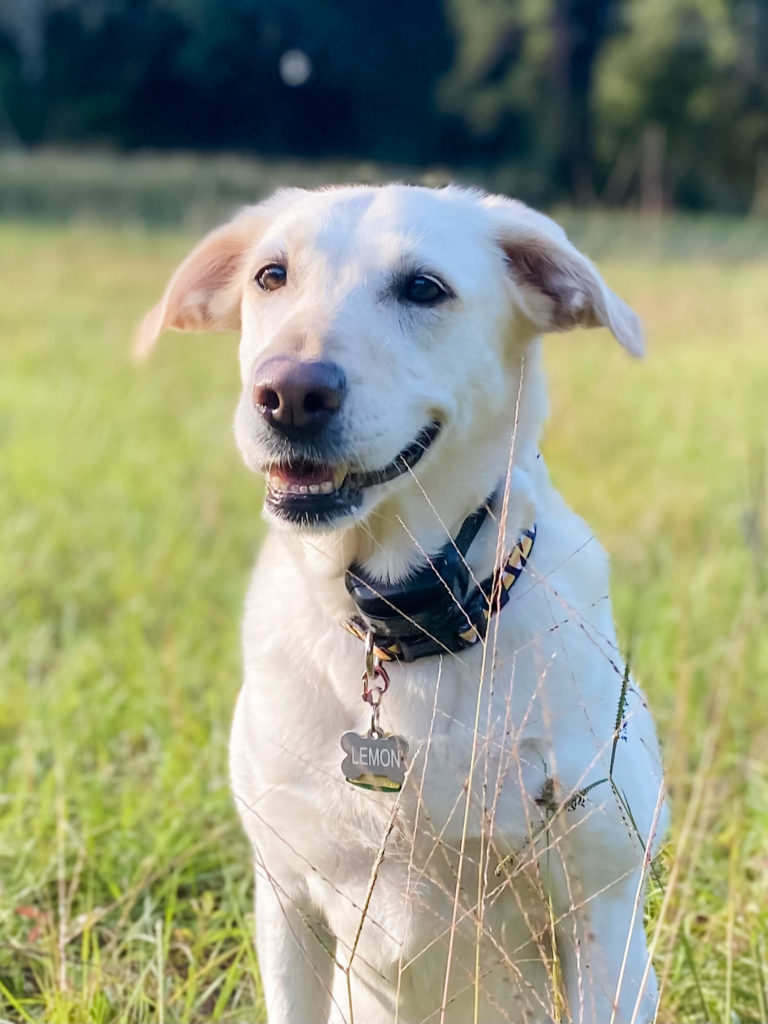
Many health issues facing senior dogs can be found in their regular bloodwork screenings before they ever present outward physical symptoms. Having baseline numbers when your dog is healthy, and rechecking those numbers for changes at an interval recommended by your veterinarian (typically annually or bi-annually), provides your best opportunity for early detection, and thus early treatment, of these issues.
Keep your dog trim and active
I’ve talked about Keeping Your Dog At A Healthy Weight before. An overweight dog, even moderately overweight, is at increased risk for many diseases, a shorter lifespan, and a lower quality of life.
A senior dog, who’s already at risk for things like osteoarthritis, heart disease, and kidney disease, is at an exponentially greater risk if they are also overweight. For an obese dog, “losing 20 pounds is better medicine for orthopedic issues than any pill,” says Cutler.
He also encourages keeping a senior dog’s activity levels up with shorter, but more frequent walks, or other activities.
Have you ever heard the saying “Use it, or lose it”? Just like people, dogs lose muscle mass as they age. A dog’s muscle mass plays a part not only in mobility and balance, but also impacts things like their bone health, energy levels, metabolism, and immune function. Keeping your senior dog active helps to combat age-related muscle loss, and its associated risks.
be responsive to small concerns
As your dog becomes a senior, it’s best to retire having a “wait and see” attitude. Seemingly benign concerns may be the first outward physical symptoms of a major medical issue. Early detection and treatment provides the best opportunity to keep your senior dog healthy and happy.
Cutler advises senior dog parents to “be responsive as soon as anything seems abnormal for your dog. Don’t wait until it’s too late.”
At 8 years old, my black Labrador Lily developed a limp. A Labrador with a limp sounds like no big deal right? As it turns out, limping or lameness is an early sign of Endocarditis, an infection of the heart valves and/or lining of the heart. Bacteria, entering the body though a small skin wound, an abscess, or even the mouth due to severe dental disease, travel in the bloodstream to the heart.
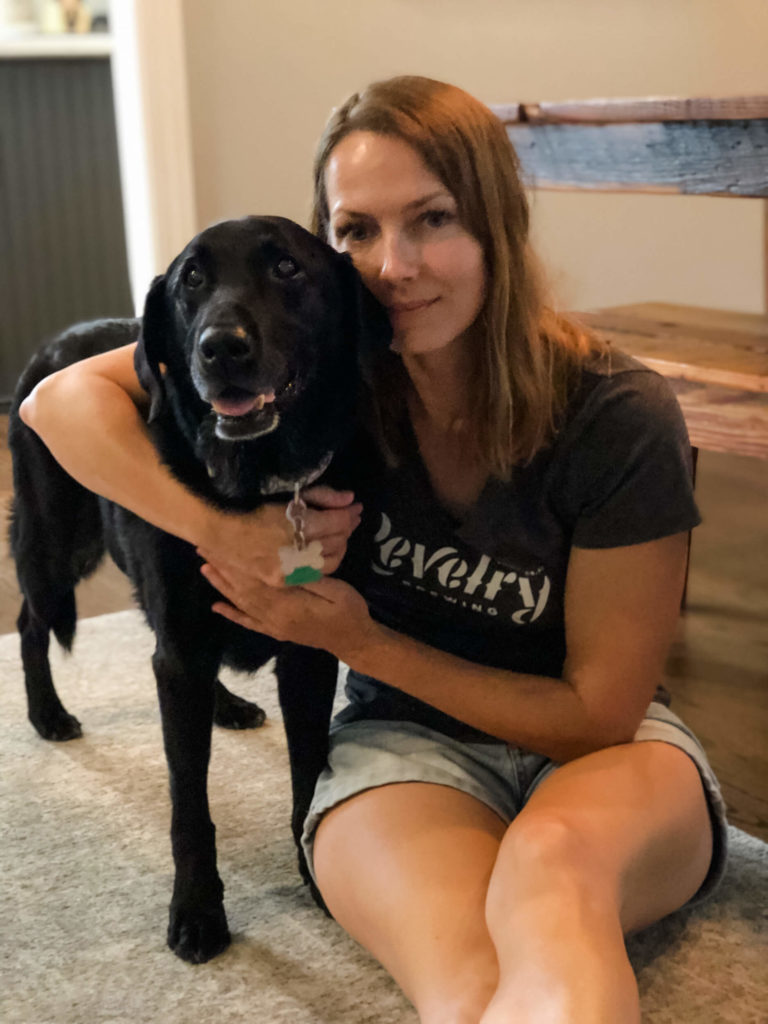
Lily’s endocarditis caused permanent damage to her Aortic valve, leading to congestive heart failure. Six months later, she was gone, and that seemingly minor limp was the first outward sign of this illness. Had I waited, Lily likely wouldn’t have survived the week.
keep your senior dog healthy and happy
As your dog becomes a senior, navigating their changing health care needs doesn’t need to be a scary thing. If you’ve not already done so, it’s time to establish a regular relationship with a reputable veterinarian you trust, and to follow their recommendations.
If you’re local to the Charleston, SC area, I highly recommend Dr. Richard Cutler, and his staff, at Cutler Animal Hospital. I would not trust my girls’ care to anyone else!
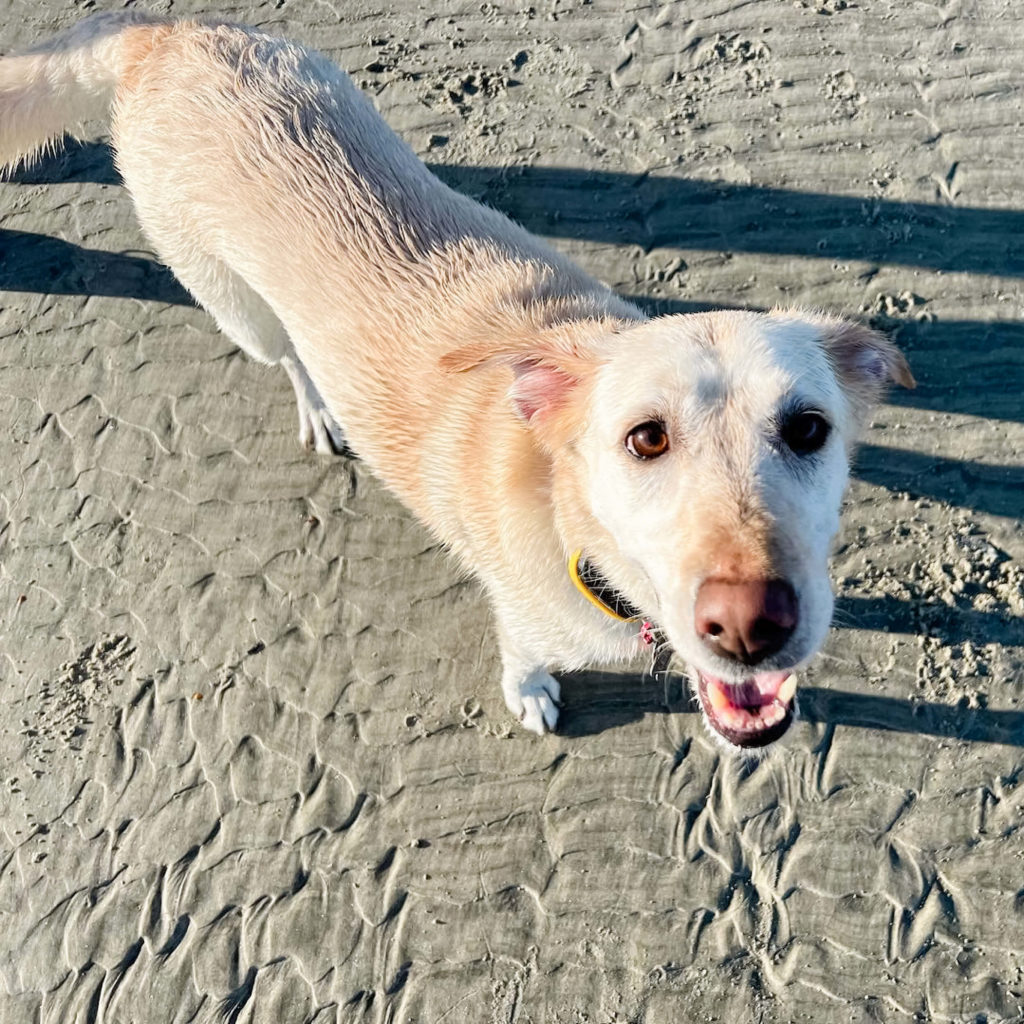
A moment of pause
In the weeks since my initial conversation with Dr. Cutler regarding senior dog health care recommendations and my own senior dog Lemon, I’ve learned of the passing of two senior dogs (from separate families) who very likely could have been saved had they been provided more frequent wellness visits, including bloodwork diagnostics.
While my heart breaks for any family losing a pet, please let their losses serve as an example why these very simple and practical recommendations are truly necessary for your own senior dog’s best well-being.



